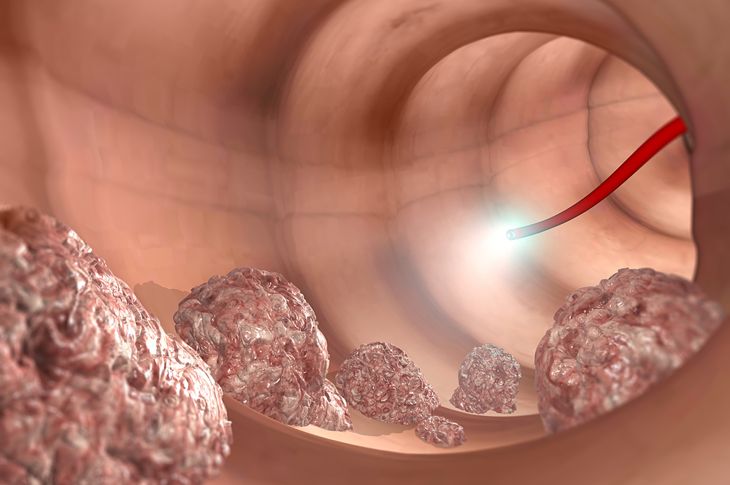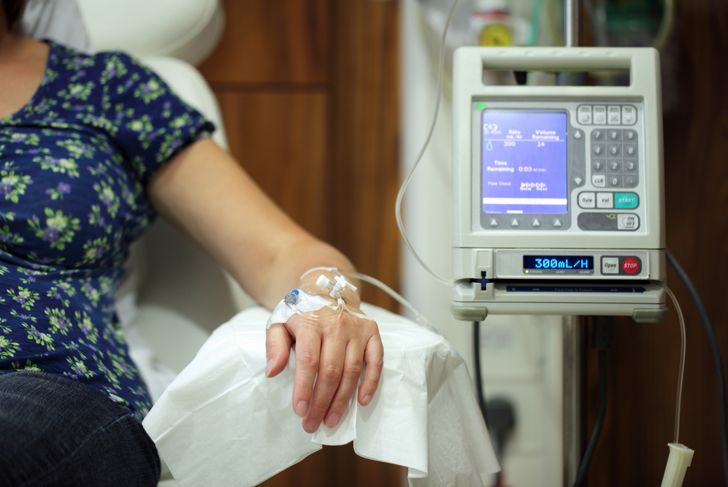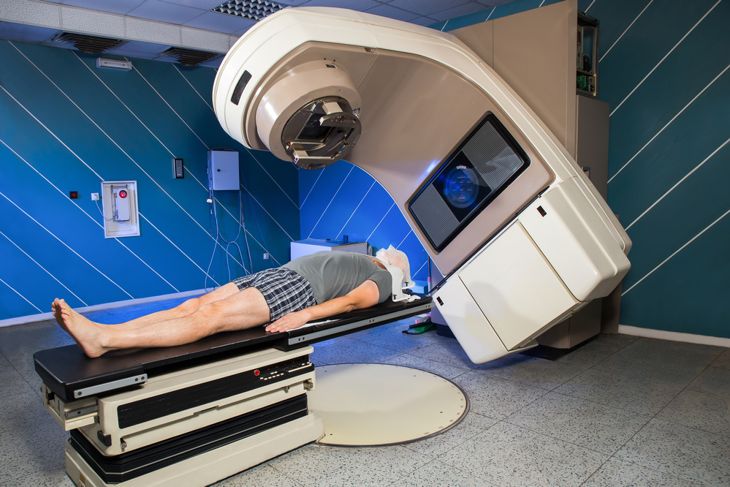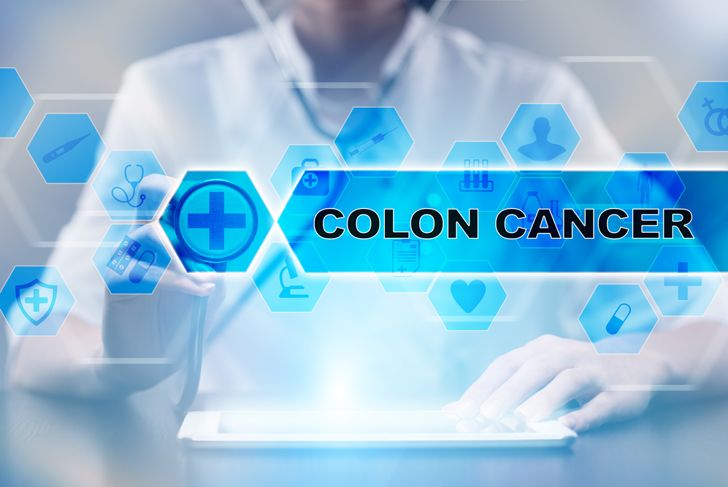There is some hopeful news if you have been diagnosed with colon cancer: It is treatable if caught early. If you have colon cancer in your family, such as a parent or a sibling, the chances of inheriting this disease are less than 5%, while 95% of colorectal cancers are spontaneous and nongenetic, according to the American Society of Clinical Oncology (ASCO). One of the best defenses against the disease is a regular colon screening. There are four stages of colon cancer, and each progression is associated with a worsening prognosis. If you are diagnosed with colon cancer, your treatment options vary depending on the stage.
Stages 0 to 1
Surgery is the primary treatment for stages 0 and 1 colon cancer; physicians usually do not prescribe chemotherapy at this point. The objective of the operation is to extract cancerous polyps or tumors surrounding the healthy tissues. In stage 0, the cancer has not spread past the inner lining of the colon or to the lymph nodes. Three surgical treatments for stage 0 colon cancer are:
Polypectomy removing cancerous polyps through a colonoscopy
Piecemeal removing flat colon growths one piece at a time through a colonoscopy
Partial colectomy removing part of the cancerous colon and nearby lymph nodes
If your doctors determine you are in stage 1, which indicates that the cancer did not spread beyond the colon, but developed deeper into the inner wall, a partial colectomy is recommended.
Stage 2
To rid your body of stage 2 colon cancer, which is cancer that has spread through the wall of the colon and possibly to nearby tissues, your doctor may initially recommend a colectomy, which removes the affected lymph nodes, surrounding blood vessels and tissues, the cancerous tumor, and a section of your colon. Chemotherapy is a controversial treatment at this point. According to the American Cancer Society, your lymph nodes are cancer-free, or node-negative. Therefore, performing chemotherapy after the surgery to prevent cancer from recurring may not be the most efficient route. Only about 5% of people with stage 2 colon cancer benefit; however, chemotherapy may be beneficial in some situations, especially if the tumor tumor is high grade or more aggressive.
Stage 3
Stage 3 is diagnosed when the cancer has spread to nearby lymph nodes but not other areas of the body. Conventional treatment for this stage is a combination of surgery and chemotherapy. Radiation therapy may be administered to individuals who are too frail to undergo surgery. Clinical trials are another option. You can check for trials based on age, the type of cancer, and where the trials are performed in your area.
Stage 4
Known as metastatic cancer or recurrent CRC, stage 4 colon cancer is a difficult stage that has spread from beyond the colon to other areas, such as the liver, lungs, or lining of abdomen, known as the peritoneum. Treatment options for stage 4 colon cancer are used to either cure, prevent, or relieve uncomfortable symptoms and include various therapies, such as a partial hepatectomy, pulmonary metastasectomy, chemoembolization surgery, and hyperthermic intraperitoneal chemotherapy.

 Home
Home Health
Health Diet & Nutrition
Diet & Nutrition Living Well
Living Well More
More














